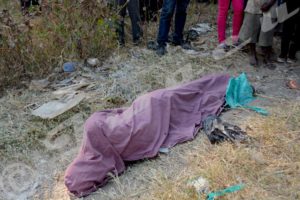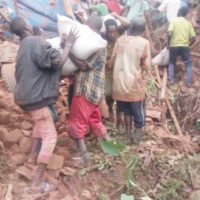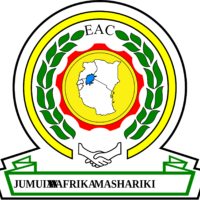No death penalty in Burundi since 2009. But extrajudicial killings are common. Additionally, there are signs that the penalty might be reintroduced.

Many people have been victims of extra-judicial killings since last year
As the world celebrates the World Day against Death Penalty, the abolition of the penalty in Burundi is threatened by the prevalence of extrajudicial killings and hints of its reintroduction.
The LDGL has congratulated Burundi along with Rwanda for having abolished the death penalty. However, the League for Human Rights in Great Lakes Region (LDGL) has noted that despite the abolition of the penalty in both countries “lives are continually lost at the hands of illegally armed groups and agents acting for the security of their respective states”. In the same way, Armel Niyongere, the president of the Action by Christians for the Abolition of Torture in Burundi (ACAT) has underlined that “death penalty has been abolished on paper, but extrajudicial killings continue in Burundi”.
Besides,there is a movement gaining momentum towards the reintroduction of death penalty in Burundi. The Defense Minister said on 18 February 2016 that the penalty would be reintroduced. “A commission to look into the possibility of the restoration of death penalty has been appointed. The objective is to punish those who attempt to overthrow institutions elected by the people or those who assassinate higher personalities”, said Emmanuel Ntahomvukiye. And more recently, some participants in the inter-Burundian dialogue organized by the National Independent Commission on the Inter-Burundian Dialogue-CNDI, a commission accused by its detractors of working for the government, echoed the minister’s words. They called for the reintroduction of death penalty for coup plotters and murderers to fight against impunity.
Burundi abolished death penalty on 24 April 2009. Extrajudicial killings that seem to have replaced it have visibly increased over the last months since April 2015 when President Nkurunziza announced he would run for a third term. Violence that resulted from the opposition to the president’s bid has led to a failed coup and targeted killings that are still going on, though they have declined in recent days. Victims of the violence have been mainly members of the opposition and higher government officials. Last June, a UN reported mentioned that 348 had died in extrajudicial killings. 134 were alleged killed by armed men opposed to Nkurunziza. The death of the others was blamed on government forces.


















 IWACU Open Data
IWACU Open Data

